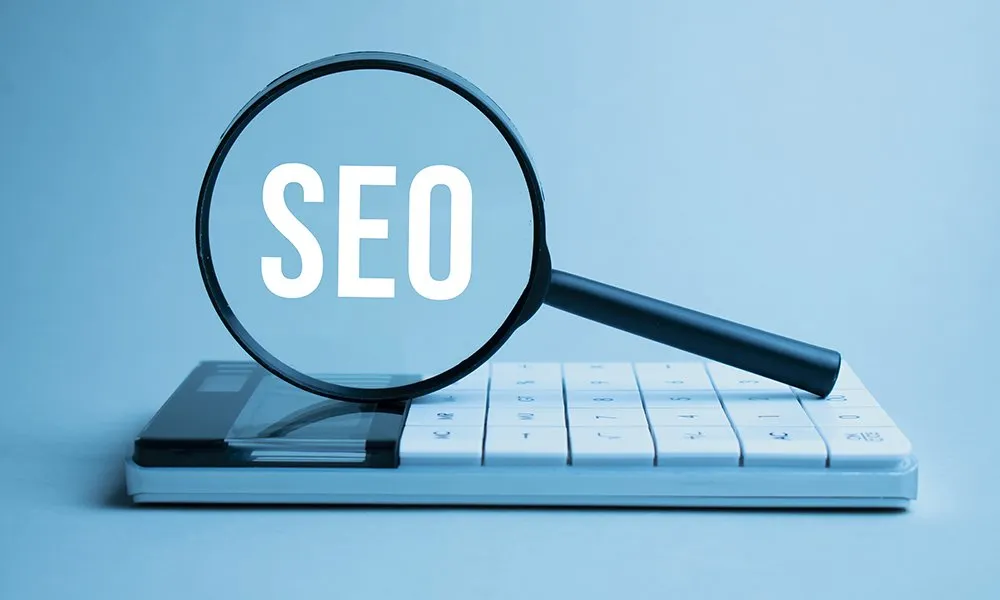You know SEO is a vital part of any digital marketing plan. But how much should your local business set aside for SEO services? How much organic traffic can influence your revenue, and what should you expect from a professional SEO agency?
Today, our SEO experts at Relentless Digital provide the full SEO budgeting blueprint for plumbers, electricians, and HVAC professionals.
Why You Need an SEO Strategy
If your potential client needs plumbing services, they want to find a reliable local professional quickly. Most likely, they’ll do it by Googling “plumbers near me” and clicking on one of the results in Google’s 3-Pack — the trio of businesses Google’s organic search suggests based on the user’s location and search intent.
You want to be up there in the 3-Pack, right before your target clients’ eyes when they need you. That is the short version of what SEO is about.
Effective SEO aims to:
- Boost your local keyword rankings
- Grow your website’s authority
- Improve your conversion rates
Does Affordable SEO Exist?
As with any product or service, when you budget for SEO, you get what you pay for. Reputable SEO professionals will invest time, effort, and skill into your campaign, which costs money.
Many small HVAC and plumbing business owners have tried a cheap SEO service and regretted it. You may waste months and pour your entire SEO budget down the drain before realizing the agency doesn’t deliver the results it promised.
In a worse case, you may discover that the budget SEO agency has actually harmed your website’s authority by using black hat SEO tactics like keyword stuffing or massive link-buying. These practices can make search engines penalize your website, pushing you down in organic search results.
Plumbing SEO services by Relentless Digital focus on giving local businesses the highest possible ROI. We don’t promise magic fixes; we take a holistic approach to SEO, complete with detailed keyword research, deep competitor analysis, and regular monthly assessment and reporting.
How Much Should You Spend on SEO?
Predictably, the answer is “it depends.” A nationwide HVAC chain will have different goals, reach, and SEO budget compared to a small-town plumbing service with three people on the team.
The cost of SEO may range anywhere from under $500 a month for a local campaign to $5,000 or more a month for an international campaign. That’s a lot of money for a small, service-based business with a limited digital marketing budget.
To decide on an SEO budget, you should first look at your overall marketing budget and where it’s going. For example, let’s say your total marketing spend is currently $1,000 a month, which splits equally between Google ads, social media advertising, and email marketing. You can only afford to spend within your allotted sum, so to budget for SEO, you’d need to take money from other venues.
The next key question is: How much ROI does each branch of your marketing efforts generate? Where do you see the lowest return? For instance, let’s say you examine the numbers and discover that your email campaigns barely break even. You then may decide to adjust your digital marketing budget and spend:
- 30% on pay-per-click (PPC) Google ads
- 30% on SEO
- 30% on social media advertising
- 10% on email campaigns
Should You Prioritize SEO or Paid Search Spend?
One common question our SEO company encounters is, “A long-term SEO strategy makes perfect sense, but I’ve just launched my business and need leads and clients right now. Should I direct my digital marketing budget to paid search instead?”
Wise marketing budget strategies include both SEO and PPC Google ads. However, the budget share you give to paid vs. organic traffic may depend on how old your business is and how much website traffic you currently generate.
If you’re starting from scratch and have no clients or reviews yet, it may make sense to invest most of your marketing budget (up to 75%) in PPC ads. However, you should still allot some budget for SEO to start building your organic traffic.
Once you have established your client base, the balance between your PPC and SEO marketing budget should shift in favor of SEO — which should, with an effective approach, generate the same or better traffic or leads. PPC will only produce results as long as you’re paying, while SEO is like a tree that keeps growing.
What if You Have an Extra Small SEO Budget?
We get it. Many plumbers, electricians, and HVAC services are small local businesses without tons of cash to spend on SEO. Maybe you are bootstrapping your business and can’t afford to invest a lot of money in an SEO campaign. However, even if you currently only have a few hundred dollars for your SEO spend, you can make the most of your budget for SEO by choosing a cost-effective SEO strategy.
Let’s list a few SEO strategies that will let you reap long-term returns for a comparatively small investment.
Audit Your Website
A professionally designed, user-friendly, fast-loading website is the cornerstone of digital marketing. Both SEO and PPC focus on driving traffic to your website, but your site’s performance will determine your conversion rate, i.e., how many of your visitors ultimately become clients.
A detailed website audit should evaluate elements like:
- Page load speed on all devices, especially mobile. Every extra second of load time costs you leads and clients.
- UX (user experience). Do your website’s sales pages give an instant view of your services and contact details?
- Technical SEO issues like broken links and duplicate content
- Your leading competitor’s organic traffic and rankings
A professional SEO audit will show you your website’s strengths and weaknesses and give you a clear roadmap toward improving your site’s performance.
Invest in Content Marketing
Content creation is one of the most effective ways to optimize search rankings for relevant keywords. How-to articles, videos, and infographics will turn your site into an efficient online marketing channel.
To make the most of your content marketing strategy, make sure you:
- Offer practical advice. Consider who your target clients are and what sort of content they are looking for. For example, if you’re offering HVAC services, you may publish an article titled “Is It Time to Replace Your AC Unit?”
- Keep it local. As a business serving a specific area, focus on local traffic and tailor your content accordingly. Mention your town or county’s name in every item and, if applicable, include local climate or other specifics that point to your area.
- Post regularly. Content marketing is all about consistency. Create a regular content schedule and stick to it. You can also incorporate seasonal changes and events (“Prepare Your Plumbing System for the Holiday Season.”)
Claim and Update Your GMB Listing
Claiming your Google My Business listing is a quick, easy step that requires zero SEO budget. Once you’ve done this, add relevant information, such as:
- Your work hours
- A brief description of your services
- Photos of your team and/or physical location
Make sure you keep your GMB listing up to date. For example, if you’re working different hours during the holidays, include this information in your listing. You can also add a booking link and allow clients to contact you through Google.
Nurture Your Reputation and Authority
Quality referral traffic is an invaluable asset. When people send potential clients to your website, you get free exposure — but to achieve this, you need to foster your authority as a local industry professional.
You can use low-budget link-building strategies, like pitching guest posts to relevant local bloggers and listing your site in local directories to get inbound links.
Also, make sure you watch your reviews. While not every review will be from an “extremely satisfied” client, acknowledge any reviews that note an issue with your services and try to reach out to these clients.
How Can You Know Your SEO Budget Is Paying Off?

Calculating organic search value can be tricky. A few months may pass before you see any results from your SEO efforts, which could make you wonder, “Does SEO work?”
Here’s an example of a typical organic traffic ROI calculation per month:
- Number of clients you gained through organic search: 5
- The average profit per client: $200
- Total income from new clients: $1,000
- Monthly SEO budget: $1,000
- ROI: 0%
At this point, it may seem like you’re just breaking even, but these numbers don’t reflect the long-term value of every new client you gained. People tend to stay loyal to local professionals who gave them great service. Next time they need plumbing, HVAC, or electrical work, they’ll likely call you without even searching for other options.
If every new client uses your services 10 times on average, it brings the profit per client to $2,000 – with no additional marketing efforts on your part. This gives you an impressive ROI of 200% per client.
What to Look for in an SEO Marketing Agency
Working with a competent SEO consultant is the key to a successful SEO plan. With so many agencies vying for your SEO budget, how do you know you’re hiring a bona fide SEO expert?
When you’re researching SEO services, look for:
- Solid credentials. How long has the agency been in the SEO industry? What is their level of expertise in keyword research, link building, referral traffic, and other SEO strategies?
- Proven track record. Does the marketing team offer a website portfolio so you can see what they have done for other clients? Do they have genuine, detailed recommendations?
- Industry knowledge. Has the agency worked with other businesses in your specific industry? Plumbers and HVAC services may call for a different SEO campaign than therapists and hair stylists.
- Full transparency. Does the agency commit to regular assessment of its SEO tactics and the revenue it generates for your business? Does it offer detailed monthly reports?
Relentless Digital: Efficient Search Engine Optimization for Plumbing, HVAC, and Electrical Contractors
Are you an HVAC, plumbing, or electrical professional looking to boost your digital marketing strategy? Let our SEO specialists at Relentless Digital show you the potential of SEO revenue for your business.
We can help you make the most of your SEO budget. Call 262-720-5739 to schedule a strategy call today.
People Also Ask
What is more important, SEO or PPC?
The SEO vs. PPC question isn’t “Which one is better?” but rather, “How do these two marketing tactics differ?”
PPC Google Ads can give you the quick boost you need to gain leads and clients fast. SEO is a long game that focuses on generating more organic traffic and building your local reputation.
Can I manage my own SEO?
What if a non-professional asked you, “Can I do my own plumbing/HVAC/electrical work?”
Your answer would likely be, “You can try, but you’ll probably waste a lot of time and get disappointing results. Actually, you may do more harm than good.”
While you can certainly use free tools like Google Keyword Planner, efficient SEO requires expertise. Boosting your business rankings, reputation, and organic traffic is a complex undertaking with many variables. Hiring a professional SEO team is much more cost-effective than trying to do everything yourself.
How do I avoid bad SEO services?
When shopping around for an SEO service, check each agency’s credentials. What results has it achieved for other businesses? Does it understand how your industry works?
Look up what reputable SEO agencies are charging. If a package seems too cheap, it probably doesn’t offer much value. Run for the hills if an SEO company “guarantees” anything unreasonable, like getting your business into Google’s 3-pack within a week for $99.
What should be my number one priority if I have a limited SEO budget?
If you only have a tiny SEO budget right now, invest in a professional website audit and see how your site is performing in terms of user experience, page speed, and conversion rate. Fix any problems like broken links, slow-loading pages, or poor visibility of essential information to maximize SEO revenue on a limited budget.



